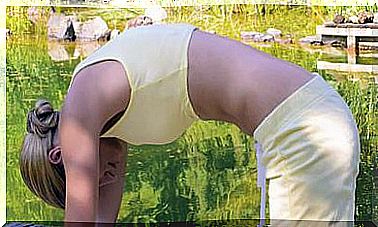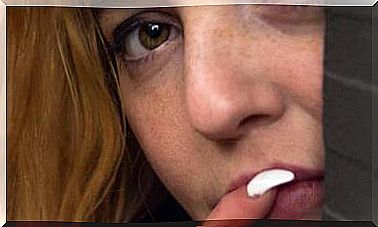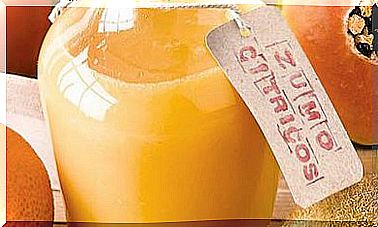Sense Of Humor And Empathy
Humor and a sense of humor have great psychological importance: they develop empathy, emotional communication, social relationships … In addition, laughter and joy make Let’s release oxytocin, the sociability hormone.

Laughter and a sense of humor are of great psychological and social importance. Today we understand that they are a way of relating to ourselves but also to others, since from a psychological and neuroscientific point of view, we think that the sense of humor is based on primal emotions, that is, on the emotional systems with which that we are all born, and on the shared knowledge and data that are supported by what is most common among human beings: in our primitive emotions.
In particular, humor is related to the emotions or “emotional systems” of joy and inquiry-knowledge; also, with the emotions related to the care and with the emotional system of the “grieving processes” or of “separation anxieties”.
Empathy and humor: how they relate
The fact that it is a basic relationship form does not mean that it does not involve complex processes. For example, to make humor you have to empathize with the feelings of the other, through what we perceive in others and what we perceive in ourselves. This implies common knowledge or sociocultural data, and implies a perception of how we can “play”, mold these data to produce joy and laughter in the other.
For this reason, humorists, or all of us when we do humor, follow a process of approaching the feelings of others, but maintaining a certain distance and distance, without being confused with others.
In this perspective, the basis of the sense of humor is empathy, that is, direct emotional communication, from mind to mind and from neurological system to neurological system.
Only in this way can we pre-conceive the game with those elements of social reality and the minds of others that will serve, through mental processes of both, to stimulate joy in others.
The basis of the sense of humor is empathy, direct emotional communication
It is not easy to be able to maintain that mobile and dynamic distance between approaching and separating, between empathy and distancing, to spread joy combined with inquiry, reflection, surprise –which is at the base of so many elements of humor–, etc.
Humor is basic to democracy
Ultimately, humor makes us laugh and entertains us, while humor makes us laugh and makes us think. That is why humor and a sense of humor are basic to human solidarity and sociability and, ultimately, they are basic to democracy.
That is why bitter people and “bitter” social systems (tyrannical or in crisis) have always considered it a danger: on the one hand, because it stimulated solidarity, always dangerous for those people and systems. On the other hand, because it can lead to “laugh at the values” that these people or societies consider immutable, unchangeable, of divine origin or eternal. There is nothing more relativistic than humor.
That is why we always insist that a sense of humor is essential for real solidarity and even for democracy.
Its conscious and organized dissemination would undoubtedly improve care and communication relationships.
If the importance of cultivating joy and cultivating a sense of humor were taken into account, our societies and relationships would change enormously. Instead of dedicating all day to cares, demands, self-demands, jobs and competitiveness, we should and must consider and preserve a time for humor, for the active cultivation of joy.
Buñuel sentenced: “A day without laughter is a day wasted.”
If we took more into account the importance of humor and a sense of humor, it would be a radical change, in its most positive sense. Also if it were used more appropriately in the media and the journalistic world.
The sense of humor is one of the most advanced bases of the sociability and socialization of individuals, and if it could be stimulated – and it can, I know, and there are many studies and practices that show it – society would benefit from it.
Laugh at ourselves
Let us remember that the most refined form of humor is that which includes us as objects of comedy for others, for others, which allows us to “laugh at ourselves”. It is a challenge to narcissism, a sample of trust in others and in their benevolence, it is to set an example of relativism and acceptance of criticism… Consequently, it develops feelings based on another basic emotion: caring; develop the bonds of caring for others and caring for us.
If there is little humor in our life or few reasons for a sense of humor, let’s watch a typical “laughing movie” at least once a week, and as a relationship, partner or group.
But let it be a real laugh, to laugh just to laugh, similar to those that have made generations of children and generations of adults laugh, such as “The fat man and the skinny man”, “Tom and Jerry”, “Popeye” … absurd humor and not so much sarcastic or black, which are already other types of humor. It is a very basic system to implement humor in our life and benefit from all the psychological benefits for the body and mind.
The laugh that heals
As Ecclesiastes already said, “joy lengthens the years,” that is, it lengthens life. That is why it should be a basic component in hospital care, and more so in difficult, complex or terminal cases. Adequate hospital humor programs are already being developed in various countries, and incipiently in ours.
In addition to promoting socialization, laughter and a sense of humor have fundamental biological repercussions: they produce psychological, but also neurological, endocrine and even immune changes.
It is an extremely important system of reinforcing our health at a general level for all that it stimulates in us, even in our body.
For this reason, laughing for the sake of laughing is something very healthy in itself.
It sets all the muscles in motion. Laughter involves the mobilization of at least fifteen facial muscles and other large muscle masses: thoracic, cervical, limb. It acts as a kind of “body wave” that takes over all of our muscles, both voluntarily and involuntarily.
Through the large movements of the diaphragm that it involves, it improves respiratory function, stimulates circulation, tends to lower blood pressure and increase heart rate in harmony with the rest of the body changes …
The diaphragm itself, by pressing on the viscera and facilitating their discharge, facilitates digestion… At the endocrine level, laughter and joy stimulate important endocrine changes such as the discharge of oxytocin (the sociability hormone) and of opioids and cannabinoids endogenous, with which the perception of pain and pain tolerance can be modified … By other biochemical routes, it puts our immune system into action. And here a long etcetera could go on.









